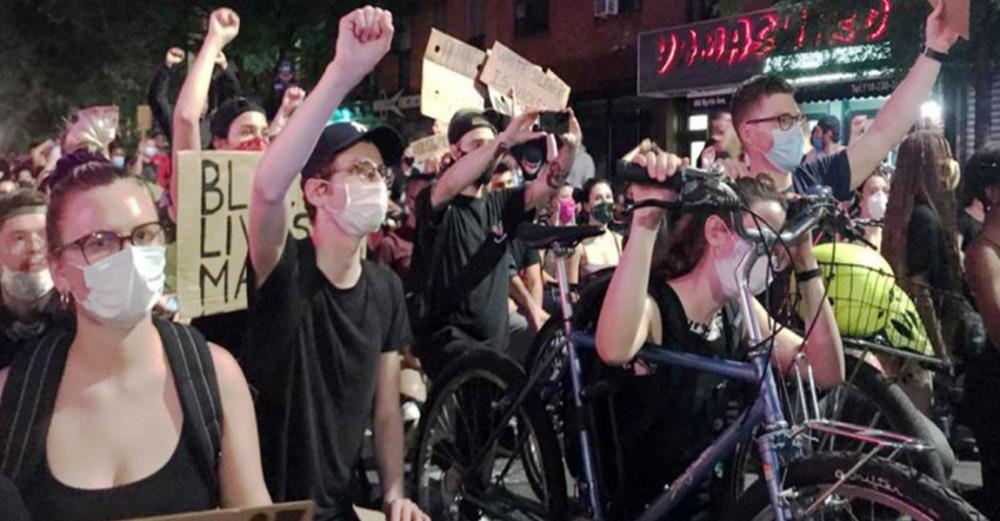Just Earth News | @justearthnews | 15 Sep 2020, 02:01 am Print

Protesters demonstrate against police brutality and racial injustice in Brooklyn, New York. : Sarah Scaffidi
New York: Clampdowns on the media have increased sharply in 2020, the UN cultural agency said on Monday, highlighting 21 protests around the world this year in which State security forces have violated journalists’ rights.
In its new report, Safety of Journalists Covering Protests – Preserving Freedom of the Press During Times of Civil Unrest, the UN Educational, Scientific and Cultural agency (UNESCO) said that between January and June this year, journalists have been increasingly attacked, arrested and even killed.
Launching the report, UNESCO Director-General Audrey Azoulay underscored that the freedom to inform citizens on the causes of unrest and the response from State authorities, are of vital importance for democracies to thrive.
“Journalists have a critical role in reporting and informing audiences on protest movements”, she said.
Wide-ranging abuses
UNESCO’s findings reveal a “wider upward trend” in the use of unlawful force by police and security forces over the last five years, with more than 30 protests impeded by police and security forces last year alone – double the 2015 number.
The report finds that during this period, global protests have been rooted in concerns over economic injustice, government corruption, declining political freedoms and growing authoritarianism.
It details a wide range of abuses journalists face when covering protests, from harassment, intimidation and beatings, to being shot at with lethal or non-lethal ammunition, detention and abduction.
‘Much greater efforts’ needed
Citing the Committee for the Protection of Journalists, UNESCO said that in some protests, up to 500 separate violations occurred. And during demonstrations linked to the Black Lives Matter movement for greater racial justice, these included the use of rubber bullets and pepper balls, which led to the blinding of several journalists.
Ms. Azoulay pointed out that “for many years, UNESCO has been raising global awareness” to ensure that journalists can do their jobs, “without fear of persecution” and has continued to train “security forces and the judiciary on international norms in freedom of expression”.
However, the UNESCO chief warned the figures in the report “show that much greater efforts are needed”.
Ensuring better protection
The report also contains concrete recommendations for all actors – from media outlets and national authorities to international organizations – to ensure better protections for journalists.
Strengthening training for police and law enforcement on freedom of expression and appropriate behaviour in dealing with the media, is just one of the proposals outlined in the Safety of Journalists.
Others include providing appropriate training and equipment to journalists, including freelancers, sent to cover demonstrations as well as appointing national ombudsmen to hold police accountable for the use of force against journalists during demonstrations.
Standing shoulder-to-shoulder
UNESCO provides technical assistance to Member States, including training for police and security forces on upholding press freedom and freedom of expression.
“We call on the international community and all relevant authorities to ensure that these fundamental rights are upheld”, the UNESCO chief stated.
- Caught on camera: Two foreigners assaulted in Israel in an alleged racial attack
- Pakistan: Parents heartbroken after court sides with man accused of kidnapping minor Christian girl
- Pakistan: Trafficked 35 years ago, Bangladesh-born woman approaches court against FIA for offloading her from flight!
- Hindu tea worker found bound and bloodied in Bangladesh garden during general elections; investigation underway
- Brutal killing shakes Bangladesh: Hindu trader hacked to death ahead of polls





-1763561110.jpg)
